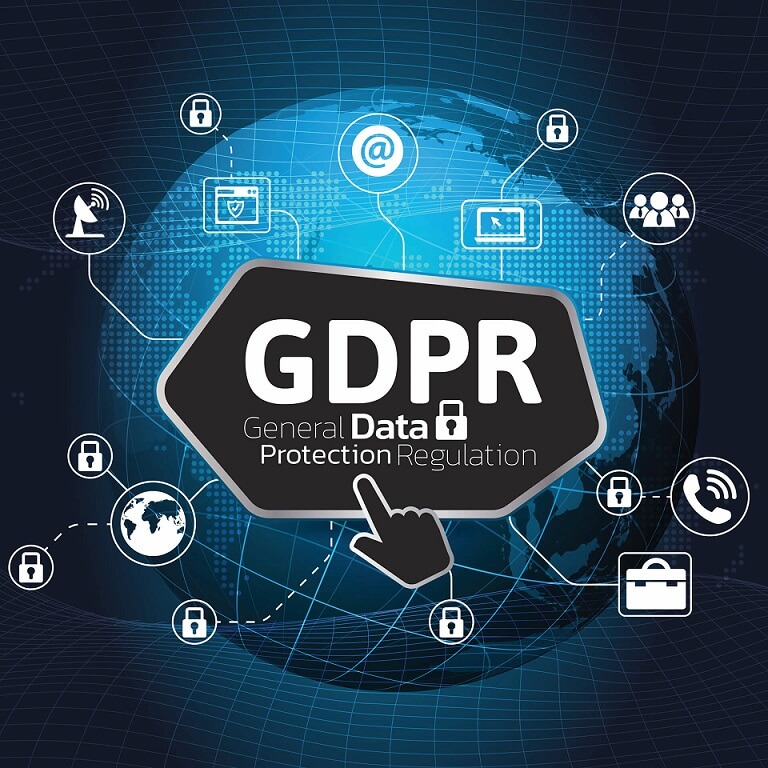Table of Contents
In the digital landscape where data breaches and privacy concerns are increasingly prevalent, understanding the General Data Protection Regulation (GDPR) is essential for businesses and individuals alike. Implemented on May 25, 2018, GDPR represents a significant overhaul of data protection laws, setting a new global benchmark for privacy rights, security, and compliance.
What is GDPR?
The GDPR (EU) 2016/679 is a comprehensive data protection law that came into effect in the European Union (EU) but has far-reaching implications for companies worldwide. It represents a significant shift in the way personal data of individuals within these regions is collected, stored, processed, and protected by organizations worldwide. It aims to give individuals more control over their personal data and to unify data protection regulations across the EU, thereby simplifying the regulatory environment for international business
Who is Affected?
The GDPR affects:
- Organizations within the EU: All entities operating within the EU, regardless of their size, that process personal data are subject to the GDPR.
- Organizations outside the EU: Non-EU organizations that offer goods or services to individuals in the EU or monitor the behavior of individuals within the EU are also subject to the GDPR.
- Individuals within the EU: The GDPR enhances the rights of EU residents, offering them greater control over their personal data.
Key Requirements of GDPR
The GDPR is built around several key principles that dictate how personal data should be handled, processed, and protected. Understanding these requirements is crucial for any organization striving for compliance:
- Lawfulness, Fairness, and Transparency: Processing must be lawful, fair and transparent to the data subject.
- Purpose Limitation: Data must be collected for specified, explicit and legitimate purposes, and not further processed in a manner that is incompatible with those purposes.
- Data Minimization: The collection of data should be limited to what is necessary in relation to the purposes for which they are processed.
- Accuracy: Personal data must be accurate and, where necessary, kept up to date.
- Storage Limitation: Data should be retained only as long as necessary for the purposes for which they are processed.
- Integrity and Confidentiality (Security): Personal data must be processed in a manner that ensures appropriate security, including protection against unauthorized or unlawful processing, accidental loss, destruction or damage.
- Accountability: The data controller is responsible for, and must be able to demonstrate, compliance with all the principles mentioned above.
Rights of Data Subjects
The GDPR enhances and introduces new rights for data subjects, including:
- The right to be informed: Individuals have the right to be informed about the collection and use of their personal data.
- The right of access: Individuals can access their data and ask how their data is being used.
- The right to rectification: Individuals have the right to have inaccurate data corrected.
- The right to erasure (Right to be Forgotten): Individuals can request the deletion of their data under certain conditions.
- The right to restrict processing: Individuals can request the restriction of processing of their personal data.
- The right to data portability: Individuals have the right to receive their personal data in a structured, commonly used, and machine-readable format.
- The right to object: Individuals can object to the processing of their personal data in certain circumstances, including for direct marketing.
Additional Requirements:
- Consent: When processing is based on consent, it must be freely given, specific, informed, and unambiguous, with a clear affirmative action by the data subject.
- Data Protection by Design and by Default: Organizations must implement appropriate technical and organizational measures to meet the principles of data protection effectively and safeguard individual rights. Integrating privacy considerations into the design of systems and processes, known as ‘Privacy by Design,’ is a GDPR principle that emphasizes proactive privacy measures from the outset of any project or process involving personal data.
- Data Protection Impact Assessments (DPIAs): DPIAs are required where data processing is likely to result in high risk to the rights and freedoms of individuals, particularly with the use of new technologies.
- Data Breach Notification: Organizations must notify the appropriate data protection authority of a data breach within 72 hours, unless the breach is unlikely to result in a risk to the rights and freedoms of individuals. Affected individuals must also be notified if there is a high risk to their rights and freedoms.
- Data Protection Officers (DPOs): Organizations must appoint a DPO if they are a public authority, their core activities require large scale, regular and systematic monitoring of individuals, or their core activities consist of large scale processing of special categories of data or data relating to criminal convictions and offences.
- One-Stop-Shop: The GDPR introduces a one-stop-shop mechanism for organizations operating in multiple EU countries, meaning they only have to deal with a single supervisory authority.
- Cross-Border Data Transfers: The GDPR imposes restrictions on the transfer of personal data outside the EU, ensuring that such transfers only occur to countries or entities providing an adequate level of data protection.
- Processors Obligations: Processors are directly responsible for processing personal data in accordance with the GDPR’s mandates, including processing data based on the controller’s documented instructions, ensuring the confidentiality of the processed data, and aiding controllers in meeting their GDPR obligations.
- Record Keeping: Controllers and processors must keep detailed records of processing activities.
- Security of Processing: Controllers and processors must implement appropriate technical and organizational measures to ensure a level of security appropriate to the risk.
- Cooperation Among Supervisory Authorities: Supervisory authorities must cooperate with each other to ensure consistent application of the GDPR across the EU.
- Certification Mechanisms, Seals, and Marks: The GDPR encourages the use of certification mechanisms, seals, and marks as evidence of compliance with its provisions, including for controllers or processors not directly subject to the regulation due to their geographical location .
By adhering to these requirements, organizations can ensure compliance with the GDPR, thereby enhancing the protection of personal data and potentially avoiding significant penalties for non-compliance. Non-compliance with the GDPR can result in hefty fines, with penalties reaching up to €20 million or 4% of the annual worldwide turnover of the preceding financial year, whichever is greater, for the most serious infringements.
The GDPR’s impact extends beyond the borders of the EU and EEA, affecting any organization worldwide that processes the personal data of individuals within these regions. Its implementation marks a significant step towards enhancing individuals’ privacy rights and setting a new global standard for data protection.
For organizations seeking to fortify their data protection measures in line with GDPR standards, our Comprehensive GDPR Compliance Cybersecurity Solutions provide a robust framework tailored to meet the unique challenges of your business.
Whether you’re looking to enhance your cybersecurity measures or seeking expert consulting to navigate GDPR compliance, reach out Nebosystems today. Let us help you transform GDPR compliance from a daunting obligation into an opportunity for enhanced data security and trust building.
Reference: General Data Protection Regulation (2016/679). EUR-Lex.


